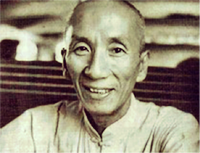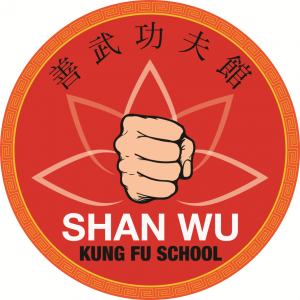 Great-Grandmaster Yip Kai Man (October 1, 1893 – December 2, 1972) also spelled as Ip Man (葉問), and also known as Yip Kai-man (葉繼問) was born in into the wealthy and well-known family of Ip Oi Dor and Ng Shui in Foshan City, Guangdong Province, China. He was just a toddler when the Qing government began to crack, and grew up during the turbulent years of a Chinese war against Japan and the internal Boxer Rebellion.
Great-Grandmaster Yip Kai Man (October 1, 1893 – December 2, 1972) also spelled as Ip Man (葉問), and also known as Yip Kai-man (葉繼問) was born in into the wealthy and well-known family of Ip Oi Dor and Ng Shui in Foshan City, Guangdong Province, China. He was just a toddler when the Qing government began to crack, and grew up during the turbulent years of a Chinese war against Japan and the internal Boxer Rebellion.
At the age of twelve, Ip Man began to watch the Kung Fu classes taught by Master Chan Wah Shan on the main street of Foshan (Song Yuen Dai Gai). Fascinated, he begged the master to accept him as a student. Master Chan originally rebuffed him, saying that spoiled rich kids made poor students of Kung Fu. To get rid of Ip Man once and for all, Master Chan said that he required a payment of 500 Tai Yeung (silver dollars) to become a student. His plan worked, for a while.
The following year, Ip Man returned to Master Chan with the requested money. Chan Wah Shan at first was shocked and claimed Ip Man must be a thief. He took the boy to his father for punishment, only to learn that Ip Man had spent the past year working to earn part of the fee and that his parents had given him the rest. Master Chan had no choice but to accept Ip Man as a student.
His first training was intense, but short. Because of the master’s advancing age, Ip Man practiced most of his techniques with Chan’s second-oldest disciple, Ng Chung-sok. Ip Man was only able to study with Chan Wah Shan for three years before the master passed away. For a short while after that, Ip Man continued to train with Ng Chung-sok.
At the age of 15, Ip Man moved to Hong Kong to attend school at St. Stephen’s College. One day Ip Man saw a foreign police officer beating a woman. Ip Man intervened and struck down the officer. The incident brought a small degree of fame, and soon an older man who lived in the same apartment block asked Ip Man about his Kung Fu. He was excited to show off his skills, but the older man dismissed Ip Man’s forms as not very good. When challenged to spar using chi sau, Ip Man found himself unable to defend, with the older man entering and striking with ease.
The older man then revealed his identity. He was Leung Bik, the son of Leung Jan. Astounded by his good fortune to meet the son of his teacher’s teacher, Ip Man continued his Wing Chun studies with Leung Bik for nearly a decade.
At the age of 24, Ip Man returned to Foshan and became a policeman. He taught Wing Chun to other officers, friends and family members but did not open an official school. In 1949, the Chinese Communist Party officially established the People’s Republic of China on the mainland. Because Ip Man was an officer in the rival political party, the Kuomintang or Chinese Nationalist Party, he was forced to flee to Hong Kong.
Ip Man established his first school on Castle Peak Road in Sham Shui Po, then later moved to Lee Tat Street in Yau Ma Tei. Over the years, he taught many, many students and gained great popularity as a Kung Fu master. In 1967, Ip Man and his students established the Wing Chun Athletic Association (詠春體育會). Grandmaster Ip Man continued to teach there until his death in 1972.
The stories and legends of Ip Man have now become famous, inspiring numerous books and movies. His legacy was carried on by his sons, Ip Ching and Ip Chun, and such famous martial artists as Leung Sheung, Wong Shun Leung, Jiu Wan, Ho Kam-Ming, and Bruce Lee.
